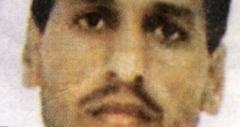As the Assad regime crumbles, feared figures like Jamil Hassan and Hussam Luka flee, leaving their opulent residences in disarray. Neighbors recount their terror, while rebels occupy the vacated properties, determined to pursue justice for the regime's crimes.
The Unraveling of a Regime: Assad's enforcers flee the ruins

The Unraveling of a Regime: Assad's enforcers flee the ruins
Following the collapse of Assad's regime, many of his former enforcers abandon their luxurious homes, leaving behind chilling reminders of their past.
In the wake of Bashar al-Assad's regime disintegration in Syria, many of his notorious enforcers have hastily abandoned their homes, leaving behind a haunting trail of their former lives. Among these figures is Jamil Hassan, known as "the butcher" for his ruthless tactics while leading the Air Force Intelligence. As the 72-year-old fled with his family, his neighbors felt a chilling shift, hopeful that the end of his reign signaled a new beginning.
Stepping into Hassan's abandoned apartment revealed the haste of their escape, with signs of everyday life abruptly interrupted—a half-eaten carrot cake sat in the fridge, clothes littered the beds, and wilting flowers adorned the dining table. A photo of Hassan and Assad, with an ominous inscription, eerily loomed overhead. The notorious enforcer commanded a network of detention facilities where countless Syrians faced brutal torture, his departure emblematic of the crumbling regime.
Like Hassan, many prominent regime officials have gone into hiding, and tracking them down amidst the chaos proves a formidable task. Rebel groups, spearheaded by Hayat Tahrir al-Sham (HTS), have vowed to hunt these individuals within Syria, reclaiming neighborhood spaces previously controlled by fear. This quest for justice is increasingly complex, as some suspect these war criminals to be negotiating political asylum abroad.
Many residents leaving Hassan's once-quiet street recount their terror of living in proximity to a war criminal. Inside his now-quiet home—where military guards once patrolled—an unsettling stillness descends. Tales surface of the oppressive routine that defined life under Hassan’s scrutiny, with neighbors recalling threats inflicted upon anyone daring to speak.
Rebels currently occupying the residences of regime figures are transforming these once-opulent homes into operational bases, while uncovering remnants of a life built on oppression. One apartment now serves as sleeping quarters adorned with confiscated luxury furnishings; the heavy atmosphere of unease dissipates slightly, replaced by a cautious hope for retribution.
Adjacent to Hassan's home lies another associated figure, Hussam Luka—the so-called "spider," also linked to myriad war crimes. Documents detailing his affiliations with Assad and ceremonial accolades emphasize the regime’s deep-rooted structures of violence. As rebels sort through Luka's belongings, curiosity and anxiety intertwine; the ghosts of the regime's violent past seem to linger in every crevice.
As speculation abounds regarding the whereabouts of these notorious figures, the local populace entertains varying theories. Some believe they may have fled to allied nations like Lebanon, while others contemplate potential escapes to coastal areas like Latakia—an Alawite stronghold. Reports circulate that Mamlouk, another high-ranking Assad associate, could have leveraged connections with Hezbollah to facilitate a quick escape across borders. Each rumor heightens the urgency for those seeking justice, as displaced citizens express a collective wish for accountability.
Despite the challenges posed, calls for justice echo within and beyond Syria. The Syrian Center for Media and Freedom of Expression emphasizes the need for international collaboration to hold these individuals accountable, while advocating for the historical recognition of the regime's crimes. Formerly silenced voices of the oppressed are now clamoring for retribution, paving the way for a possible revolution of justice.
While the world watches, the hunt for figures like Jamil Hassan and Ali Mamlouk continues, fostering a lingering hope that their pasts will catch up with them. Many yearn for their return to a place where they can finally face the consequences of their actions—far removed from streets once shadowed by fear.





















